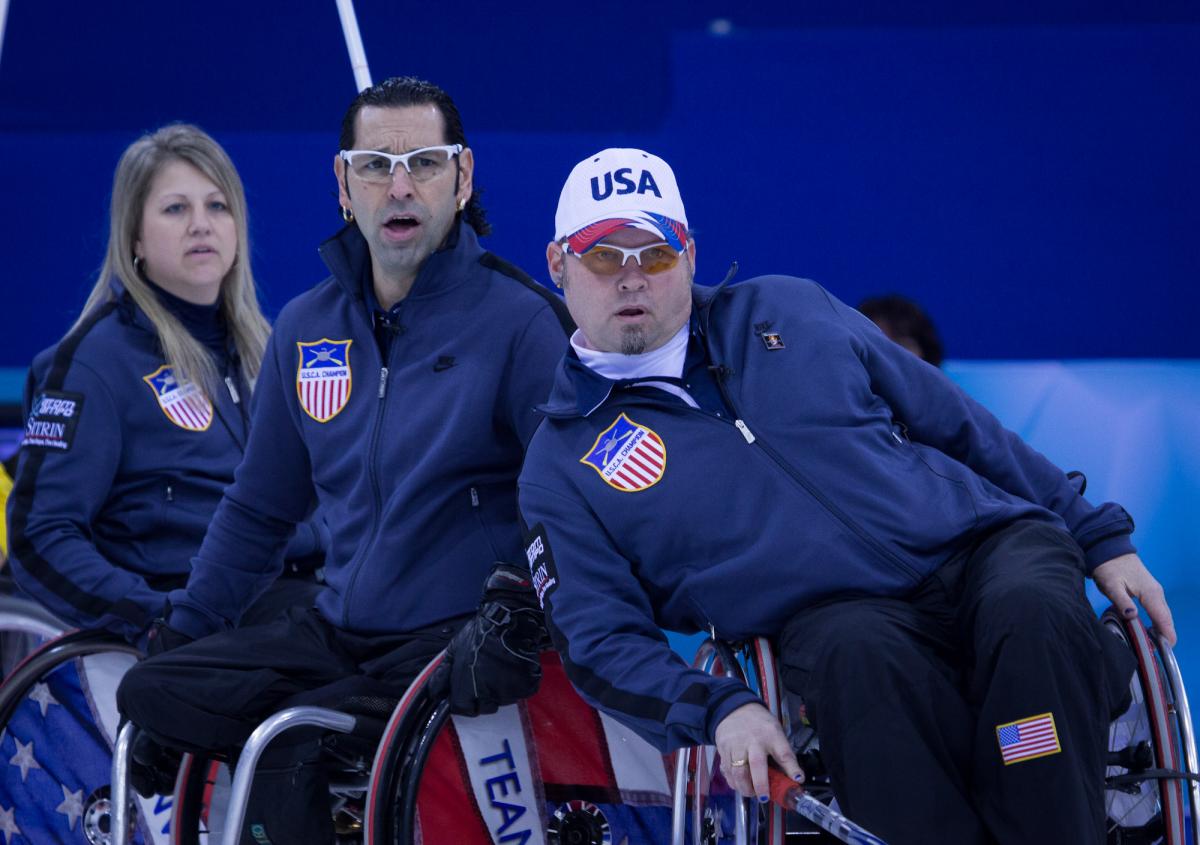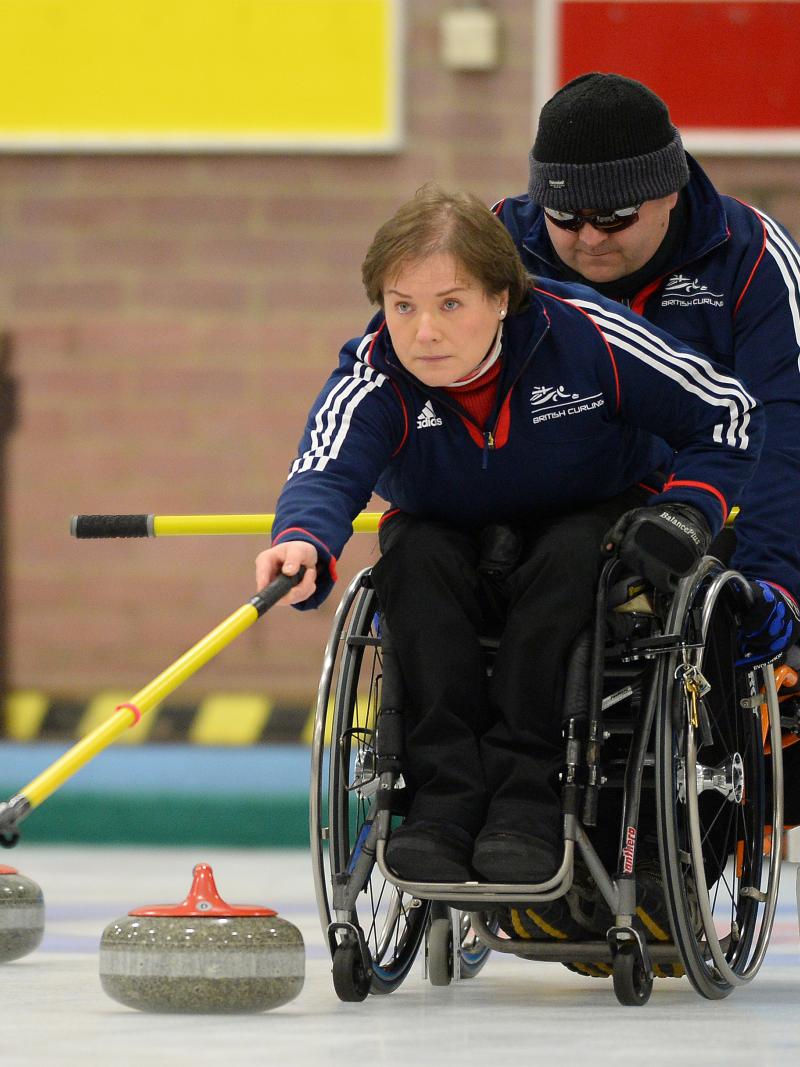USA’s Patrick McDonald tired of fourth place
The American skip, a war veteran and collector of tattoos, is eager to give the USA their first Paralympic medal in wheelchair curling. 26 Feb 2014
Patrick McDonald skipped the USA to a fourth-place finish at the 2013 World Wheelchair Curling Championships. The USA lost to China in the bronze-medal game.
“If we do our jobs correctly and curl the way we know how, we should be on the podium.”
American wheelchair curler Patrick McDonald is sick of finishing in fourth place.
After just missing the podium at the 2009 World Wheelchair Curling Championships and the Vancouver 2010 Paralympics, McDonald persuaded his wife to move with him from California to Wisconsin so he would have access to designated curling ice on a regular basis.
“Obviously, we would have liked to finish a little higher at those events,” McDonald said. “But the team in 2010 played the best we could and finished the round robin strong. When it came to the medal rounds, Sweden played really tough and got us in the last end, and they got the bronze and we finished fourth.”
McDonald took the year off after Vancouver 2010 to have a shoulder replacement.
Six months later, his family – which includes his wife, Carrie, and two children, Andie and Kaelan – packed their bags and moved to Wisconsin.
But there was no immediate improvement. Team USA finished fifth at the 2012 World Championships and fourth at the 2013 World Championships.
Two more events, two more missed podium opportunities.
McDonald became the team’s skip in 2012 and is now heading to the Sochi 2014 Paralympics with a squad that includes David Palmer, Jimmy Joseph, Penny Greely and Meghan Lino.
At 46, McDonald’s back story is expected to take just as much flight with reporters in Sochi as his performance on the ice, with the Games being aired on the networks of NBC for the first time.
McDonald is a US Army veteran who lost the use of his legs in 1991 when his armored personnel carrier rolled in Korea.
He also started collecting tattoos when he was just 13. He is now covered in them from his ears to his ankles, and they all mean something to him.
“I’m into skulls,” McDonald said. “I think the skull is a beautiful part of the human body. You have your nose and your cheek bones, everything. Your frowns. Your smiles. Your laughter. Everything that gives you who you are.”
But his mind is still focused on the ice, where he hopes to lead the Americans to their first-ever Paralympic medal in wheelchair curling and knock off the favourites from Canada and Sweden.
McDonald said it is awfully tough to win every single match at a Paralympics, and that the USA need to do just enough to get into the playoffs and then come out as strong as possible in the medal rounds.
“A year later, we are the same team as at last year’s World Championships, but a stronger version of that team, and I think we can do it this time,” McDonald said.
“If we do our jobs correctly and curl the way we know how, we should be on the podium.”




-Mark-Kolbe-Getty.jpg)


